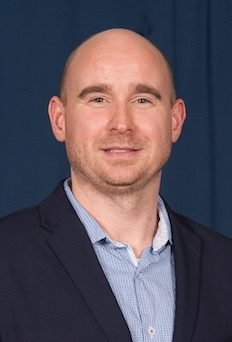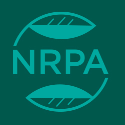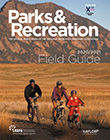
2021 Speed Session Bundle: Aquatics and Fitness
-
You must log in to register
- Non-Members - $50
- Members - $35
- Premier Members - $35
This bundle is worth 0.1 CEU and contains the following three speed sessions from NRPA's 2021 annual conference:
The Future of Aquatic Facilities and the Dangers They Face With the Rising Minimum Wage and Increased Staffing Regulations (Session 028)
The geriatric and disabled populations are the two most poverty-stricken populations in the country. With the minimum wage rising and more staffing requirements needed by ARC, Starguard and Ellis, the cost of labor in increasing dramatically. Can these populations keep up with this cost? How will swim lessons cope with this rising cost as well? The presenter will go over LG requirements, the drowning statistics in aquatic centers to show how safe they already are and the increased drownings this summer based on no swim lessons or places to swim. Also, attendees will learn why aquatic therapy and exercise are important to the geriatric and special needs communities. I will go over LG requirents, the drowning statistics in aquatic centers to show how safe they already are, the increased drownings this summer based on no swim lessons or places to swim. Also the geriatric and special needs community's needs for aquatic therapy and exercise.
Learning Objectives:
- Discuss the rising cost of already burdened aquatic centers.
- Understand how important tax-subsidized aquatic centers are to the lower income populations.
- Learn about the dangers of trying to be 'too safe.'
Youth Water Safety Messaging Efficacy: A Qualitative Examination (Session 034)
This session will present the results of a study aimed at examining how effective learn to swim programs are in delivering water safety messages that are actionable and understandable to youth participants. In depth interviews were conducted with youth participants in learn to swim programs in at-risk communities in Florida. As the study participants were almost exclusively from minority racial and ethnic backgrounds, the study provides some important aspects for practitioners in the provision of aquatic safety programming for traditionally underserved populations. Outcomes from the analysis can be used to inform future program development, design, and delivery of water safety programs.
Learning Objectives:
- Identify the important water safety messages that resonate with youth swimming participants in at-risk communities.
- Discuss strategies to tailor aquatic safety programming to various participant groups, including minority and at-risk participants.
- Describe the social learning agents that influence youth swim lesson participants and their perceptions of water safety behaviors.
Community Recreation/Fitness Centers Functioning as Industry Stimulator and Incubator (Session 007)
This session will provide data analytics that demonstrate how a community recreation/fitness center renovation and expansion can function as a fitness industry stimulator and a business incubator. One year after completion a residential assessment determined that the overall fitness market is larger than the national average, and that residents select to purchase multiple memberships across the market.
Learning Objectives:
- Articulate how a community recreation/fitness center functions as an industry market stimulator.
- Articulate how a community recreation/fitness center functions as a business incubator.
- Explain the value of developing a co-opetition strategy with industry business stakeholders.

Patrick Nalley (he/him)
Amherst County
Certifications include CPRP, AFO, CFO, LG, LGI, Diversity and Inclusion Professional Certificate from Cornell University, Certified Adaptive Recreation and Sport Specialist (CARSS) from the Blaze Institute, 20+ years in the aquatic industry. I have a Masters in Sports Administration from Arkansas State University and a Doctorate in Public Administration from West Chester University. My dissertation topic is The Need for Government Subsidized Aquatic Centers for the Geriatric Population. My previous experience includes four years as the Aquatic Manager for Mt Hood Community College, three years as a Parks and Recreation Director for Peyton, Colorado, and twelve years as a swimming coach and aquatics facilities manager for multiple organizations.

Angela Beale (she/her)
Associate Professor
Rowan University
Dr. Angela K. Beale-Tawfeeq is an Associate Professor and Program Coordinator of the Health/Physical Education, Teacher Education (HEPETE) Program, in the Department of Science, Technology, Education, Arts, Mathematics, and Movement Education (STEAM), in the College of Education, at Rowan University. Dr. Beale-Tawfeeq received her B.A, in English and M.S. in Therapeutic Recreation from Howard University, in Washington D.C., and her doctorate, in Physical Education, Teacher Education, from the Florida State University, in Tallahassee Florida. Dr. Beale-Tawfeeqs interest in addressing health disparities in the African American community, promoting equity and social justice via water safety and drowning prevention in historically excluded and underserved communities, redirected her professional focus toward the inclusion of public health issues. Dr. Beale-Tawfeeq went on to receive her Master of Public Health, in Community Health with a global perspective, from Arcadia University, Glenside, PA. Dr. Beale-Tawfeeq currently serves as a member of the American Red Cross, Scientific Advisory Council, Aquatic Sub Council, Director of Education and Research for Diversity In Aquatics (DIA), a non-profit 501 4c organization, whose mission is to save lives and reduce the incidence of drowning through global efforts. Additionally, she founded End Needless Drowning, which specializes in aquatic physical activity-based youth development programs in underserved communities. Dr. Beale-Tawfeeqs research, grant writing, and academic pursuits have included, community health and the evaluation of culturally competent physical activity programs, drowning prevention and water safety among African American and Latino populations, youth development, service-learning and culturally responsive pedagogy in K-12 health and physical education, and advocacy for programs and policies that will improve health conditions in African American and Latino communities. Dr. Beale-Tawfeeq has been recognized with several national awards and honors, presented on the international, national, regional and local levels, and has been published in several refereed journals.​

Austin Anderson
Assistant Professor
University of North Texas
Dr. Austin R. Anderson is an Assistant Professor in the Kinesiology, Health Promotion and Recreation department at the University of North Texas (UNT). Dr. Anderson's main research focuses primarily on issues of diversity, inclusion, social justice and public policy in leisure and recreation through examinations of sport-specific recreation and management areas. These issues include stigma and belonging in aquatic, sport and campus recreational spaces, with an emphasis on social justice-based goals for people who often find themselves marginalized due to prejudice, discrimination and/or lack of access. Dr. Anderson also has an active research agenda investigating aquatic safety and management, particularly those involving minority population groups.

William Ramos (he/him)
Associate Professor, Dir. IU Aquatics Institute
Indiana University
Residing within the Department of Health Wellness Design under the umbrella of the Indiana University School of Public Health Bloomington as an Associate Professor, Dr. Ramos research is focused on examining the impact of both built and natural aquatic environments on the human experience. In addition, he also engages in the legal aspects of aquatics in the role of expert consultant. His educational preparation includes a Ph.D. in Leisure Behavior with a minor in Law from Indiana University. Behind his research is over 30 years of practitioner experience in the field of aquatic management stretching from conventional pools and waterfronts to todays modern waterparks. His insider exposure to the field of aquatic management has provided the impetus for research questions surrounding issues such as drowning prevention, physical activity, safe engagement, and recreational water illnesses. Work on drowning prevention has connected him with projects throughout the United States, as well as several countries within Africa, and most recently Vietnam. Dr. Ramos current service contributions to the field include appointments to the board of The ZAC foundation, and American Red Cross Scientific Advisory Council as well as a role on the United States Water Safety Action Planning Committee.

Joseph Walker (he/him)
Principal Lecturer
University of North Texas

Laura Walker (she/her)
Faculty
University of North Texas

Zachary Beldon (he/him)
Lead Faculty of Sport Management
Lincoln College
Zach is a recent PhD graduate from the University of North Texas. He studies the impact that coaches have on the sport experience of athletes throughout the lifespan. He has authored several book chapters over sport history and expansion as well as the youth sports industry in the United States. Currently, Zachary serves as the lead faculty member of Sport Management at Lincoln College.


Engage With Us